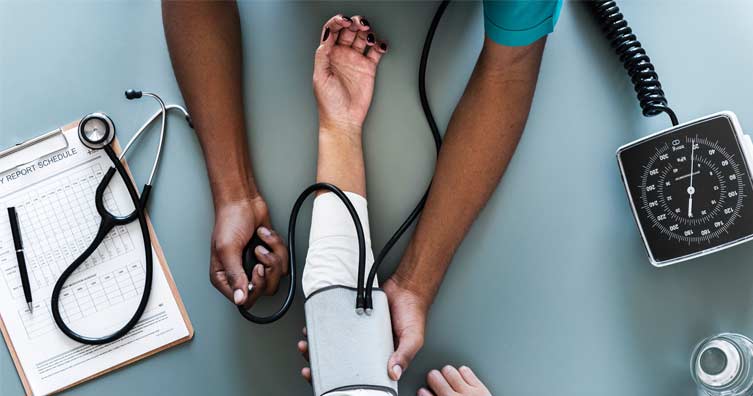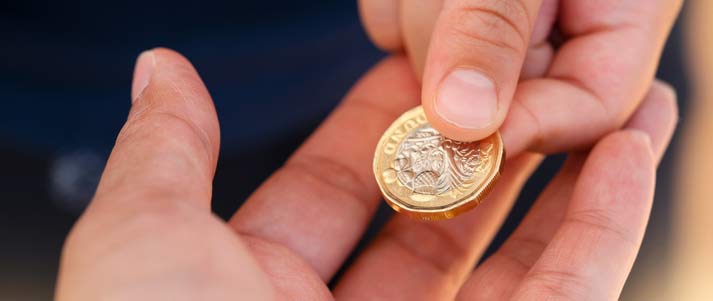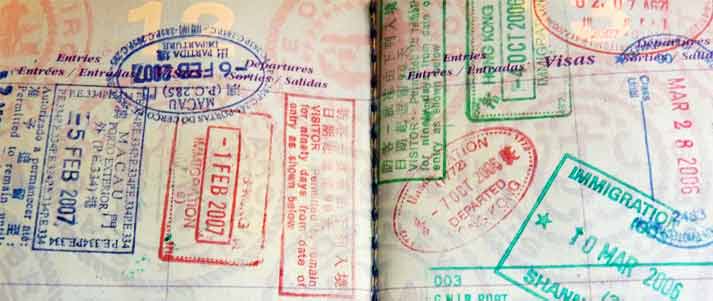How to get cheap healthcare and dentistry
Things like prescriptions, dental treatment and eye tests can take a big chunk out of your budget at uni. Here's how you can keep healthcare costs low...

We all know that UK citizens are entitled to free healthcare in the UK through the National Health Service (NHS). But many things, including prescriptions, dental treatment and eye tests come at a cost, something which can be a bit of shock when you first arrive at university.
There are also key differences between healthcare costs in England, Northern Ireland, Scotland and Wales that you might not be aware of.
But there are ways you can get these extra healthcare costs reduced (or even free) if you know how the NHS works and what help is available. Our complete guide has everything you need to know about student health.
What's in this guide?
Getting medical care as a student

Credit: Jacob Lund – Shutterstock
Register with a local GP in your university town
Your first port of call when it comes to healthcare at university should be registering with a GP.
For some health services (a trip to A&E, for example) it doesn't matter if you're not registered nearby. But for general check-ups, regular prescriptions and access to medication, you'll find it much easier if you're registered somewhere at or near your university.
Most universities will have a GP attached to or affiliated with them, and this is normally the best option to go for as they'll be experienced in dealing with student health. However, you can register with any local GP.
Make sure you register as soon as you arrive at university. The last thing you want is to be filling in forms when you've come down with a bout of freshers' flu.
Some GPs may ask for some ID or your NHS number in order to register, as well as the name of your previous GP. But bear in mind that you can't be refused registration if you don't have access to these. International students may be asked to provide proof of their student status.
The important thing to remember is that since GP services are provided by the NHS, they'll be free. You might have to pay for prescriptions though.
What to do if you get ill during the holidays
If you go home for Christmas, Easter or summer and you become ill, you'll still be able to head to your nearest GP practice at home for emergency treatment. You can receive emergency treatment for up to 14 days, and after that, you'll have to register as a temporary resident (or permanent patient) with that GP.
You'll also have access to NHS walk-in centres and minor injuries units, which can provide treatment for minor injuries or illnesses. And you can always visit A&E for serious or immediately life-threatening conditions.
Do students have to pay for prescriptions?

Credit: Ann in the uk – Shutterstock
Although visits to the GP are free, prescriptions may not be.
If you're registered at a GP in Scotland, Northern Ireland or Wales, prescriptions are completely free. This includes students who are from England, but are studying in and registered at a GP in these countries.
In England, however, you have to pay for them, unless you're eligible for free prescriptions.
Who is eligible for free NHS prescriptions in England?
There are some eligibility criteria that could mean that you're entitled to free prescriptions in England. Among these are if you're:
- Aged under 16, or 60 or over
- Aged 16–18 and in full-time education
- Pregnant or have had a baby in the past 12 months
- In possession of a medical exemption certificate (MedEx) for a specified medical condition or continuing physical disability
- In receipt of (or are under 20 and dependent on someone in receipt of) income support or Jobseeker's Allowance.
Check the NHS website for more detailed information on eligibility criteria for free prescriptions in England. If none of the above applies to you, applying for the NHS Low Income Scheme could be a massive help.
However, even in England, some medicines are free.
Medications students can get for free
There are certain types of medication that students can get for free, including:
- Medicines administered at a hospital or NHS walk-in centre, or personally administered by a GP (during your appointment)
- Prescribed contraceptives
- Medicines supplied at a hospital or clinic for the treatment of sexually transmitted infections (STIs).
How much do prescriptions cost in England?
In England, prescription charges are currently capped at £9.90 per item, but if you have a long-term health condition that requires regular prescribed medication, you can use an NHS Prescription Prepayment Certificate (PPC) to save money in the long run.
You can currently get a three-month PPC for £32.05, which will save you money if you need more than three prescribed items in three months. You can also get a 12-month PPC for £114.50, which will save you money if you need more than 12 prescribed items a year.
Signing up for a prepayment scheme will allow you to obtain all the prescriptions you need for the equivalent of under £2.50 per week, and you don't need to pay upfront. There are a number of payment options available, including Direct Debit instalments throughout the year.
How to save money on NHS prescriptions
You can keep prescription costs down by making sure your GP doesn't add two separate prescriptions for one item (e.g. if you need 150 mg of a certain medicine, but it's only sold in 100mg and 50mg doses, you shouldn't have to pay twice).
Similarly, if you know you'll be on the medication for a while and won't need a check-up in the meantime, ask your GP to prescribe you several months of medicine in one go. This will mean you get more medicine for one prescription cost.
The NHS Low Income Scheme
The NHS Low Income Scheme (LIS) can be a student health lifesaver, as it's based on your income, not your parents'.
You can apply for the scheme if the value of your savings, investments or property doesn't exceed £16,000. And, depending on your circumstances, you can apply for full help with NHS prescription costs (HC2 certificate) or partial help (HC3 certificate).
If you're on a very low (or non-existent) income, then you'll likely qualify for one of the certificates. With these, you can get free or discounted prescriptions, dental costs, eye care costs, healthcare travel costs and wigs/fabric support.
To apply you have to fill out an HC1 form. It's quite lengthy but will be worth it if you're eligible for the certificates. Any money from Student Loans (that's Maintenance Loans, not your Tuition Fee Loans which go directly to your university), your parents and part-time work all count, so be honest here!
The application also takes into account housing costs, so again be honest with this.
Your certificate will last for anything between six months and five years, depending on your circumstances. You'll be informed at the time of application how long yours will last, so take note and remember to renew it, as you're not likely to be reminded.
Do students get free dental care?

Credit: TanyaKim – Shutterstock
Unfortunately, most dental care isn't free, even under the NHS, and there's no automatic exemption for students.
That said, you will be eligible for free dental treatment if at least one of the following applies to you:
- You're under 18
- You're under 19 and in full-time education
- You're pregnant or have had a baby in the last 12 months
- You're staying in an NHS hospital and your treatment is carried out by the hospital dentist – but you may have to pay for your dentures or bridges
- You receive (or you're under 20 and dependent on someone who receives) income support or Jobseeker's Allowance
- You're under 26 and registered with a Scottish dental practice.
If none of the above applies to you, don't panic. You might still be able to get free dental treatment by applying to the NHS Low Income Support Scheme.
You'll have to register with a local dentist practice, just like you would with a GP. However, make sure you know whether you're signing up as a private or NHS patient.
Some dental practices might have long waiting lists for NHS patients, or simply won't be accepting NHS patients at all. If you register as a private patient instead, you'll have to pay significantly more.
How to find an NHS dentist
Finding an NHS dentist is pretty straightforward. The NHS has a search tool which enables you to locate NHS dentists in your local area.
Look for dentists who are accepting adult NHS patients. Those who are accepting NHS patients by referral only will only accept those who have a letter of referral from their GP.
It's also worth noting that it's often easier to register with a dentist after you've registered with a local GP.
How much does dental treatment cost?
NHS dental charges are based on courses of dental treatment, which fall into one of four categories.
Even if you have to visit your dentist more than once for a single course of treatment, you'll still only pay a single set fee (as outlined below):
- Band One course of treatment (£26.80) – This covers basic examinations, X-rays, advice on preventing future problems, scale and polish (if necessary) and preventative care
- Urgent dental treatment (£26.80) – This covers things like pain relief or a temporary filling
- Band Two course of treatment (£73.50) – Everything listed in Band One, plus further treatment like fillings, root canal work or tooth removal
- Band Three course of treatment (£319.10) – Everything listed in Bands One and Two, plus crowns, dentures, bridges and other laboratory work.
Are students eligible for free eye tests?
Just like prescriptions and dental treatment, the chances are you'll have to pay for eye tests, as well as glasses and contact lenses.
Who can get a free eye test and NHS optical vouchers?
Some people are eligible for a free NHS eye test and optical vouchers to go towards the cost of glasses and contact lenses. This includes, but isn't limited to, those who are:
- Aged under 16, aged 60 or over, or aged 16–18 and in full-time education
- Registered as partially sighted or blind
- Diagnosed with diabetes or glaucoma
- At risk of developing glaucoma
- On income support or Jobseeker's Allowance.
You'll also be eligible for a free or discounted eye test and optical vouchers if you have an HC2 or HC3 certificate through the NHS Low Income Scheme.
If you do go for a private eye test and glasses/contact lenses, prices can vary hugely across the high street. Make sure you shop around to get the best deal.
Vaccinations you need before starting university

Professionals strongly advise making sure all your vaccinations are up to date before you head off to university but, if you forget, it should be your first priority once you've registered with a GP.
Recommended vaccinations include those for protection against diphtheria, polio, tetanus and measles, mumps and rubella (MMR). Students starting uni are also advised to have had the HPV vaccine for protection against human papilloma virus (HPV) related cancers.
Most UK nationals will have been vaccinated against these diseases as a child or teenager as part of the UK national immunisation programme, but it's worth checking with your GP.
MenACWY vaccine
The MenACWY vaccination, also known as Nimenrix, protects against meningitis and septicaemia and is especially recommended for teenagers and freshers. It replaces the Men C vaccine that was discontinued in July 2016.
MenACWY is a relatively new vaccine and, although it is offered to teenagers in Years nine or 10 as part of the broader national vaccination programme, it's definitely worth checking whether you've had it.
You'll remain eligible for the vaccination up until your 25th birthday. It's suggested that new university students get it as you'll be mixing closely with lots of new people (some of whom may be unknowingly carrying the bacteria at the back of their nose and throat).
Flu jab
Although freshers' flu is incredibly common among students, you won't be eligible for a free flu jab unless you have asthma or a serious long-term health condition.
If you're eligible for a free flu vaccine, you can either get it from your GP or from your local pharmacy. Some pharmacists are able to administer the vaccine directly without you having to go to your GP first. So, if your surgery is all booked up, it might be worth checking if a pharmacy in your area does this.
How to get free contraception
You can get contraception, in whatever form, for free from contraception clinics and sexual health clinics, as well as some GPs. This includes condoms, plus prescribed contraception methods like the pill.
Where can you get contraception for free?
Here are the places you can get free contraception:
- Most GP surgeries (talk to your GP or practice nurse)
- Community contraceptive clinics
- Some genitourinary medicine (GUM) clinics
- Sexual health clinics
- Some young people's services.
And while we're on the subject, you can also get STI tests for free. You can take them at home or at a sexual health clinic/GP and you should be getting yourself tested every six months.
Most of the places mentioned above will have condoms readily available for free. But, for other forms of contraception such as the pill or the coil, an appointment with your GP will be required. These are also provided free of charge.
How much does the morning after pill cost?
There are two types of emergency contraceptive pills: levonorgestrel (e.g. Levonelle) and ulipristal acetate (e.g. ellaOne). You can take either one in the event that the contraception you used has failed or if you did not use any at all.
To be effective, levonorgestrel should be taken within three days of having unprotected sex, and ulipristal acetate should be taken within five days. The sooner you take either, the more effective it'll be.
You can buy these pills from most pharmacies but, if you do, it'll cost you a pretty penny. Levonorgestral tablets can be picked up for around £10 but if you want branded Levonelle it usually comes to around £27 and ellaOne costs around £30. However, there are places you can get the morning after pill for free.
Where can you get the morning after pill for free?
There are some places you can get the morning after pill for free. These include:
- Contraception clinics
- Brook centres
- Some pharmacies (you'll have to ask if they provide free emergency contraception)
- Most sexual health or genitourinary medicine (GUM) clinics
- Most NHS walk-in centres and minor injuries units
- Most GP surgeries
- Some hospital A&E departments.
Do international students get free healthcare in the UK?

Credit: Megan Eaves - Flickr
Whether you get free access to the NHS when studying in the UK as an international student depends on whether you're an EU or non-EU student, and when you came to the UK:
EU students (including all EEA and Swiss nationals) pre-2021
If you're a student from the EU (including all countries in the European Economic Area and Switzerland) and were resident in the UK before the end of 2020, you'll still be able to use the NHS as long as you're living here.
You will, however, need to have settled or pre-settled status if you wish to continue living in the UK and accessing healthcare on the NHS.
Non-EU students and EU students 2021 onwards
If you're a student from outside the EU, or from the EU and moving to the UK after 2020, you'll likely be well aware of the Student visa that you must apply for to be eligible to study in the UK.
On top of the cost of your Student visa, you must pay £776 per year in the form of the immigration health surcharge. If your application includes part of a year that is less than six months and you're applying from outside the UK, you won't need to pay the surcharge. If you're applying from within the UK for less than six months you'll only pay half the charge (£388) for that year.
Once this application has been accepted and paid for, you'll be able to access the NHS just like any UK resident at no extra cost (apart from those detailed above).
You can buy health insurance in addition to your visa if you wish to. This could cover things like loss of fees (if you have to drop out of your course for health reasons), travel costs when returning home and private medical treatment.
Disabled Students' Allowances (DSA)
Strictly speaking this bit isn't about student health itself. However, it's worth reminding you at this point that if you do suffer from a long-term condition, you can apply for Disabled Students' Allowances (DSA).
DSA is there to cover any extra costs you incur due to one of the following:
- A disability
- A mental health condition
- A learning difficulty such as dyslexia.
You apply for DSA at the same time as you apply for your Student Finance, whether you're a part-time or full-time student.
The amount of support you'll get depends on your needs as an individual, not on your income. Unlike your Student Loan, you won't have to repay DSA.
Keen to stay fit and healthy at uni? Try these ways to exercise for free.








